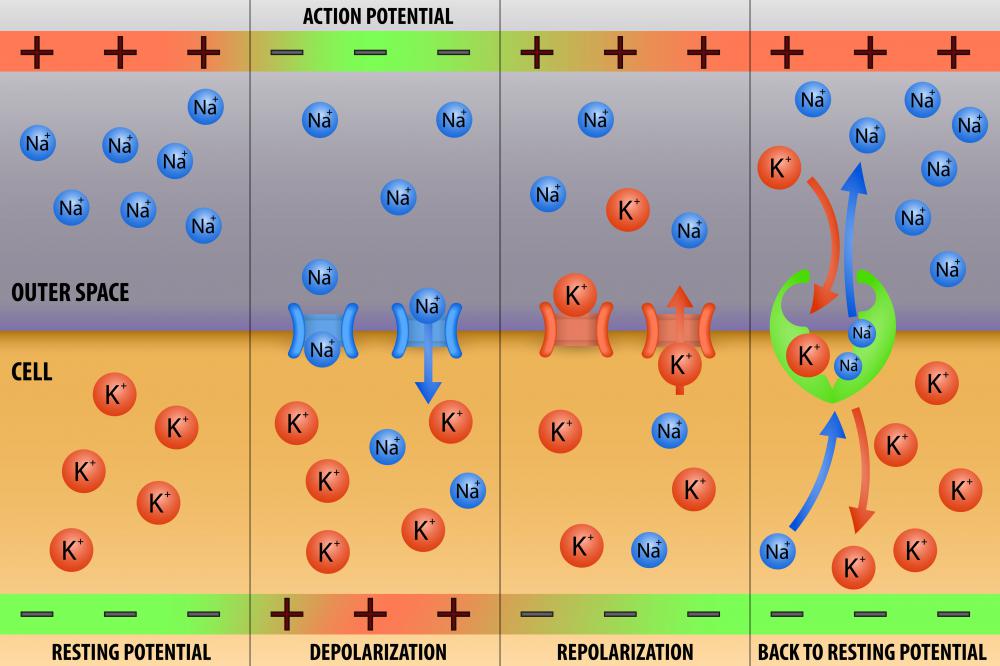At WiseGEEK, we're committed to delivering accurate, trustworthy information. Our expert-authored content is rigorously fact-checked and sourced from credible authorities. Discover how we uphold the highest standards in providing you with reliable knowledge.
What Is Ventricular Action Potential?
The nervous system is responsible for communicating important information among cells, structures, and systems of the body. Additionally, the nervous system acts as the liaison between the environment and the body. An action potential is an electrical event responsible in part for the communicated information. A ventricular action potential refers to this event occurring specifically in the ventricles of the heart. This type of action potential is unique from others, the culmination of which is responsible for the beating of the heart.
The human heart allows nutrient-rich blood to be distributed throughout the body in a way that makes life possible. This movement of blood requires the heart to act as a pump, changing intensity and frequency according to the dynamic needs of the body. This beating relies on the ventricular action potential. An action potential can be thought of as an impulse sent down a nerve, which causes a reaction in the body.

Most action potentials occur due to a stimulus, or triggering event. This can come in the form of an external force or an internal initiation. This usually causes a sequence of complex events, involving ionic exchange and changes in charge. Once a charge reaches a particular level, known as threshold, an action potential occurs. This action potential can cause or inhibit action potentials in proximal nerves, eventually causing the body to act in a desired way.

It is important to note that a ventricular action potential and action potentials in general need to culminate for anything to be accomplished. What this means is action potentials are virtually constant. Only significant increases or decreases in action potential volumes cause change.
The ventricular action potential is a unique specimen in that it does not require a stimulus to fire. This characteristic is unique to the heart as the entire cardiac contraction is dependent on controlling nodes, which fire in intervals, causing action potentials to travel throughout the organ. This electrical stimulation caused by action potentials starts at the top of the heart, where the atria are located, and ends in the ventricular region.

The fact that the electrical impulses move from top to bottom rather than in a uniform fashion allows different chambers to contract at different times. This is no accident because all chambers simultaneously contracting would counteract each other. By allowing the atria to contract first, the ventricles fill with blood, followed by ventricular action potential and ventricular contraction, forcing blood into the body. This general concept of ventricular action potential illustrates the electrical manner in which the nervous system operates.
AS FEATURED ON:
AS FEATURED ON:













Discuss this Article
Post your comments